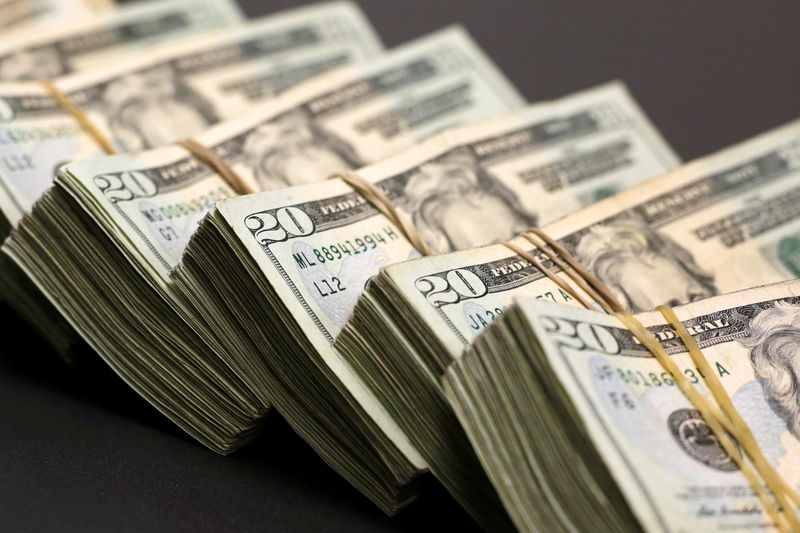By Peter Nurse
Investing.com - The U.S. dollar pushed higher Monday, as investors braced for more dire news on the fallout from the coronavirus.
At 2:55 AM ET (0655 GMT), the U.S. Dollar Index, which tracks the greenback against a basket of six other currencies, stood at 100.058, up 0.2%, while GBP/USD fell 0.3% to 1.2464. USD/JPY climbed 0.3% to 107.86.
“We are coming into the eye of the storm,” Chris Weston, head of research at brokerage Pepperstone, told CNBC.
“And as the market starts to focus less on virus headlines, or at least will be less sensitive to better news, we will focus more on the lasting effects on the economy and solvency.”
The week ahead brings U.S. monthly employment figures and eurozone survey indicators, while governments around the world make tentative steps toward easing lockdowns.
One of the currencies hard hit against the greenback Monday has been the euro following a report that the European Union may need to triple the amount of aid currently proposed to tackle the coronavirus crisis.
At 2:55 AM ET, EUR/USD fell 0.2% to 1.0856.
"The Eurogroup has now made proposals for aid worth more than 500 billion euros to finance healthcare and short-time work and to help small and medium-sized companies. That leaves at least one trillion euros. This is roughly the amount we need to be dealing with now,” the European Union’s Economics Commissioner Paolo Gentiloni said in an interview with German magazine Der Spiegel.
Given the angst that resulted from the discussions to produce the 500 billion euros worth of aid, finding the additional one trillion euros could prove tricky.
Meanwhile rising Italian borrowing costs are potentially bringing the matter to a head.
Hit hard by the coronavirus crisis and with a debt burden of over 135% of GDP, Italy is widely seen as the eurozone state most in need of largesse from its neighbors, particularly after the region’s politicians failed to agree a sale of coronabonds, a debt instrument which would pool the credit risk of weaker countries like Italy with top-rated ones like Germany.
“While coronabonds, a bank for bad debt and more fiscal stimulus may indeed still materialize (at least, at some point), it remains clear that the EU is highly divided on all growth initiatives,” said Danske Bank, in a research note. “Indeed, in our view, there is an economic/political/debt-deflation linked tail risk, which is holding down EUR/USD.”
The Financial Times reported that the European Central Bank had held talks with the European Commission about establishing a centrally-backed 'bad bank' to remove toxic loans from banks' balance sheets. It said the proposal faced stiff opposition.
Elsewhere, the dollar edged 0.1% higher against the yuan after the People's Bank of China cut its key one-year prime rate by 20 basis points, and also advanced against the Norwegian krone and the Russian ruble as oil prices came under renewed pressure.
